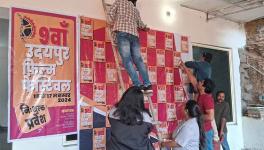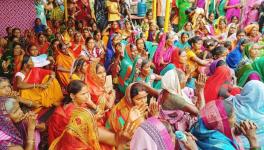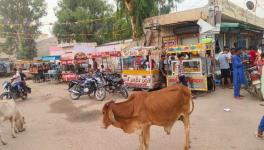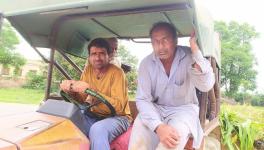COVID-19: ‘Treat Women’s Health as Top Priority,’ Delhi HC tells State Government
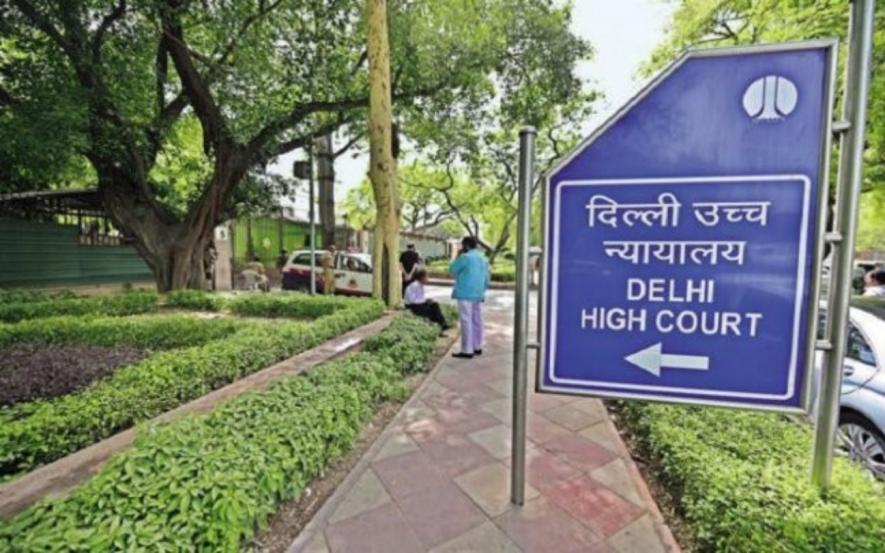
With the extension of the nationwide lockdown, key healthcare services have taken a hit, and reports of denial of maternal and reproductive health care have come from Delhi as well as from other states. Despite an order by the Delhi High Court which said that women’s health be treated as a high-priority essential service, pregnant women are experiencing substantial difficulties in accessing reproductive health services.
Denied entry in hospitals due to her religion
On April 15, Shabnam (name changed), a 25-year-old woman from Delhi who was nine months pregnant at the time, spent nearly 48 hours trying to access emergency services for her pregnancy and delivery.
Despite serious cardiac issues and having shown no symptoms of COVID-19, Shabnam was denied treatment at Delhi’s leading hospitals as the area she lives in had been designated as a “red zone” by the authorities. She first went to Safdarjung Hospital and then to the Lok Nayak Jai Prakash Narayan (LNJP) Hospital, both of which refused to admit her. She approached six public and private hospitals over the two-day period, at a time when public transportation was completely suspended and mobility severely restricted. She repeatedly faced denials, exorbitant cost estimates from a private hospital, and facilities that lacked the necessary infrastructure to deal with her condition and medical history. Moreover, the lack of non-COVID-19 ambulance services at Safdarjung Hospital and in other government hostpitals delayed her access to health care, heightening the risk to her health and life.
As of now, Delhi has more than 89 containment zones “red zones” with all 11 districts having been reportedly declared hotspots. Shabnam’s struggle is not unique. In North-East Delhi, the fear of being treated differently and being denied treatment is keeping women away from key services, often at the cost of suffering fatalities.
Given the prevailing situation, SAMA, a Resource Group for Women and Health, has filed a Public Interest Litigation (PIL) in the Delhi High Court
Speaking to NewsClick, Sarojini N. of SAMA, the petitioner in the case, said that “transport remains the biggest issue. This case (Shabnam’s) is just an example. There are many more such cases. We wrote to the Health Ministry too, but did not receive any response,” she added.
The Delhi High Court however responded positively to the application, stating that there was a gap in the implementation of the lockdown. Speaking to NewsClick, Lawyer Vrinda Grover said, “The court ordered that women's health has to be treated as high priority essential service. Just as services dedicated for senior citizens with ECHO vans, taking them to and fro, a dedicated set up and helpline will be announced for pregnant women. Additionally,
ASHA workers will be regularly in touch with women in the last trimester of their pregnancy.”
Women across socio-economic strata are facing issues in accessing transportation, with many not being able to access ambulances and having to resort to home-births.
Sonali from the Jan Swasthya Abhiyaan told NewsClick that the issue at hand was two-fold. “First there is transport. Pregnant women and others in need of medical care are not able to access care. Booking a private ambulance can cost up to Rs 2000 for a one-side trip. There have been instances of patients walking to hospitals to get care. People are also afraid of being harassed by the police if they step out of their areas.”
She added that patients were being “shuffled” from one hospital to another. “There was a case of a full-term pregnant woman in Delhi who went to three hospitals and finally got admitted to the fourth hospital. I am aware of two home births that have happened during the lockdown. There have probably been many more which have gone unnoticed and unreported. This is in 2020, in India’s capital, where we are going back to an era of unskilled home births. This is avoidable and needs to be addressed urgently. Maternal health cannot become a casualty of the COVID-19 pandemic,” she said.
‘Fear they may poison me’
Uzma, a health volunteer from North-East Delhi said that they were calling women home for deliveries. “There are many complications in the process; often we are not able to arrange for transport. The fears are particularly real for women in this riot-affected region. Many of the women do not reach out to hospitals due to the fear of being ill-treated or denied entry,” she said.
“The fear is such that women think that someone will poison them because of their religion,” she claimed. The anxieties of women have been triggered after such instances have been brought to light from across India.
In Rajasthan's Bharatpur, the religion of a pregnant Muslim woman was cited as grounds for refusing to admit her to the hospital. The pregnant woman, after leaving the hospital, delivered the child inside the ambulance but the infant could not survive. In another instance from Jharkhand, a Muslim woman was accused of spreading coronavirus and was reportedly made to clean up blood by a hospital.
Also Read: COVID-19: Ignoring Women and Children’s Health Could Lead to Parallel Health Crisis, Say Experts
Get the latest reports & analysis with people's perspective on Protests, movements & deep analytical videos, discussions of the current affairs in your Telegram app. Subscribe to NewsClick's Telegram channel & get Real-Time updates on stories, as they get published on our website.










